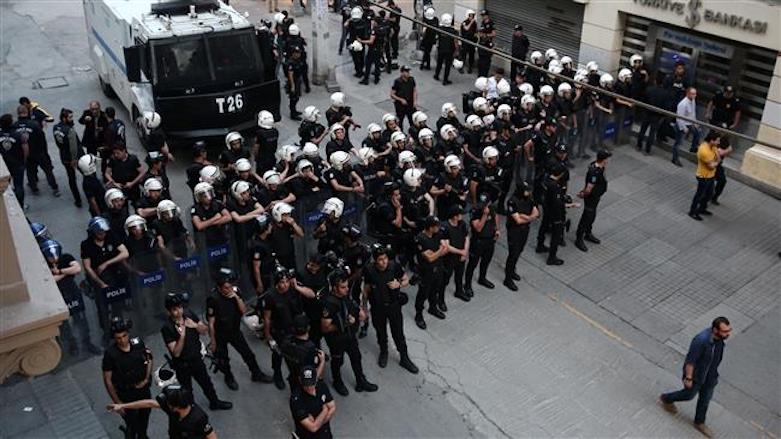Turkey extends state of emergency for fourth time

ERBIL, Kurdistan Region (Kurdistan24) - The Turkish Parliament on Monday passed a motion by the Prime Minister to extend a year-long state of emergency for the fourth time.
Lawmakers from the ruling Justice and Development (AK) Party and its far-right ally in the opposition Nationalist Movement Party (MHP) supported the bill that extended the state of emergency by another three months on the anniversary of the 2016 failed military coup attempt.
The extension follows previous speeches by President and leader of the AKP Recep Tayyip Erdogan in which he said the government needed the extraordinary measures to run the country, reported Kurdistan 24's Ankara Bureau.
Main opposition Republican People's Party (CHP) and the pro-Kurdish Peoples' Democratic Party (HDP) that view Erdogan as an increasingly authoritarian leader opposed the motion.
Erdogan government's main argument for the state of emergency has been resisting the US-based Turkish Islamic cleric Fethullah Gulen's movement which it accuses of masterminding the botched coup via followers within the army.
Ankara also cites its security concerns regarding a decades-long guerrilla warfare by the Kurdistan Workers' Party (PKK) for a form of self-governance in the Kurdish-majority provinces to the east and south.
HDP MP Meral Danis Bestas criticized the move during the vote in the parliament.
"The state of emergency destroyed citizens' right to life, property, individual security and freedom, travel, work, not to be tortured, democratic resistance and engagement in politics," Bestas said.
"My advice to the citizens of Turkey is: never cease to be shocked. Get shocked a lot. React. Nothing that is happening in today's Turkey is normal. We must reject the very concept of getting accustomed," she said.
Under a state of emergency, the President, empowered by a constitutional reform package narrowly approved by voters in a referendum last April, can bypass the Parliament in enacting new decrees.
The decrees have since last year purged over one hundred thousand civil servants and ordered the closure of hundreds of media outlets, NGOs, cultural centers, private schools, and hospitals on the grounds of having ties to "terrorist" groups detrimental to national security.
The Council of Europe (CoE), and international human rights groups such as Human Rights Watch have previously called on Ankara to end the state of emergency, citing grave rights violations, including allegations of torture in prisons and abuses of state power by officials.
Editing by Ava Homa
